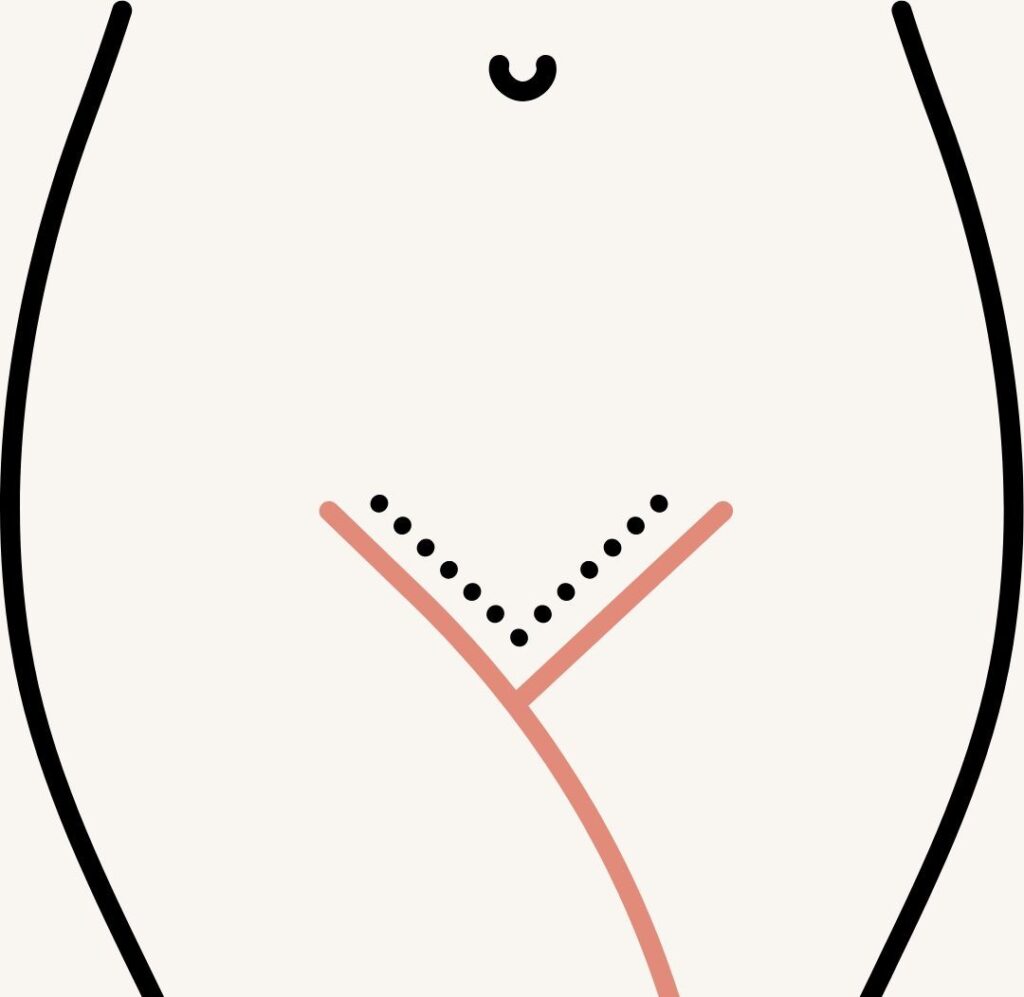
As a menopause health coach, I often hear question about unexpected body changes. This post explains what can happen to the labia minor during menopause, and how to respond with awareness, reassurance, and practical care.
Let’s be honest, no one warned us that menopause would come with a surprise guest: changes to labia minora. If things have started to feel different in your vulva, especially around the labia minora, it’s not just in your head. Menopause can bring unexpected changes to this part of the body, and most women are never told what to expect.
I believe it’s time we talk openly about labia minora menopause and give this topic the attention it deserves.
What Is Labia Minora Menopause?

Labia minora menopause refers to the changes that happen to the inner lips of the vulva as estrogen levels decline. These changes are part of a larger shift in vaginal and vulvar health during perimenopause and menopause. The labia minora may become thinner, less plump, more sensitive, or even change in color or texture. It’s not in your imagination; it’s biology.
Why Does This Happen?
Estrogen plays a huge role in maintaining the elasticity, moisture, and fullness of vulvar tissue. During menopause, the drop in estrogen can lead to:
- Thinning of the skin
- Loss of collagen and fat tissue
- Increased dryness or irritation
- Changes in appearance that may feel alarming but are often normal
These shifts can affect how you feel in your clothes, during intimacy, or even just sitting down. And because no one talks about this, many women feel confused or ashamed.
Are You Making This Mistake?
One of the biggest mistakes women is ignoring symptoms or assuming they’re just aging. You don’t have to suffer in silence. There are gentle, effective ways to support vulvar health and feel more comfortable in your body.
What You Can Do About It
Labia minora menopause is manageable. You can support your body with:
- Local estrogen therapy: A low-dose cream or ring can restore tissue health without systemic effects.
- Vulvar moisturizers: Look for fragrance-free, pH-balanced options designed for sensitive skin.
- Nutrition and hydration: Key nutritional supplements including omega-3s, antioxidant-rich multivitamins, and probiotics – along with plenty of water, help maintain skin integrity.
Explore my healthy and hormone-friendly recipe collection, packed with meals that support metabolism, skin health, and energy.
- Gentle movement: Yoga, Pilates, walking, and pelvic floor exercises help improve circulation and reduce discomfort.
- Mindful intimacy: Use lubricants, communicate with your partner, and explore new ways to feel connected.
FAQs
I feel disconnected from my body. Is that normal?
It’s heartbreakingly common. Menopause can feel like a betrayal, but it’s actually an invitation to reconnect.
Can stress or lifestyle affect vulvar changes during menopause?
Yes. Stress, sleep, diet, and movement all influence hormone balance and tissue health. Chronic stress can accelerate estrogen decline, which in turn affects vulvar elasticity and hydration. In my coaching programs, we look at the full picture; not just what’s happening down there, but what’s happening everywhere in your life.
How long do these changes last?
There’s no one-size-fits-all timeline. Some women notice changes during perimenopause, others well into postmenopause.
You Deserve to Feel Good in Your Skin
Changes in labia minora during menopause isn’t a flaw. It’s a sign that your body is evolving. With the right support, you can feel confident, informed, and even more connected to yourself. As a Menopause Coach, I help women navigate these changes with science-backed strategies, humor, and compassion.
Join my newsletter, explore my digital guides, or book a free discovery call to start your journey toward personalized support.
+ show Comments
- Hide Comments
add a comment